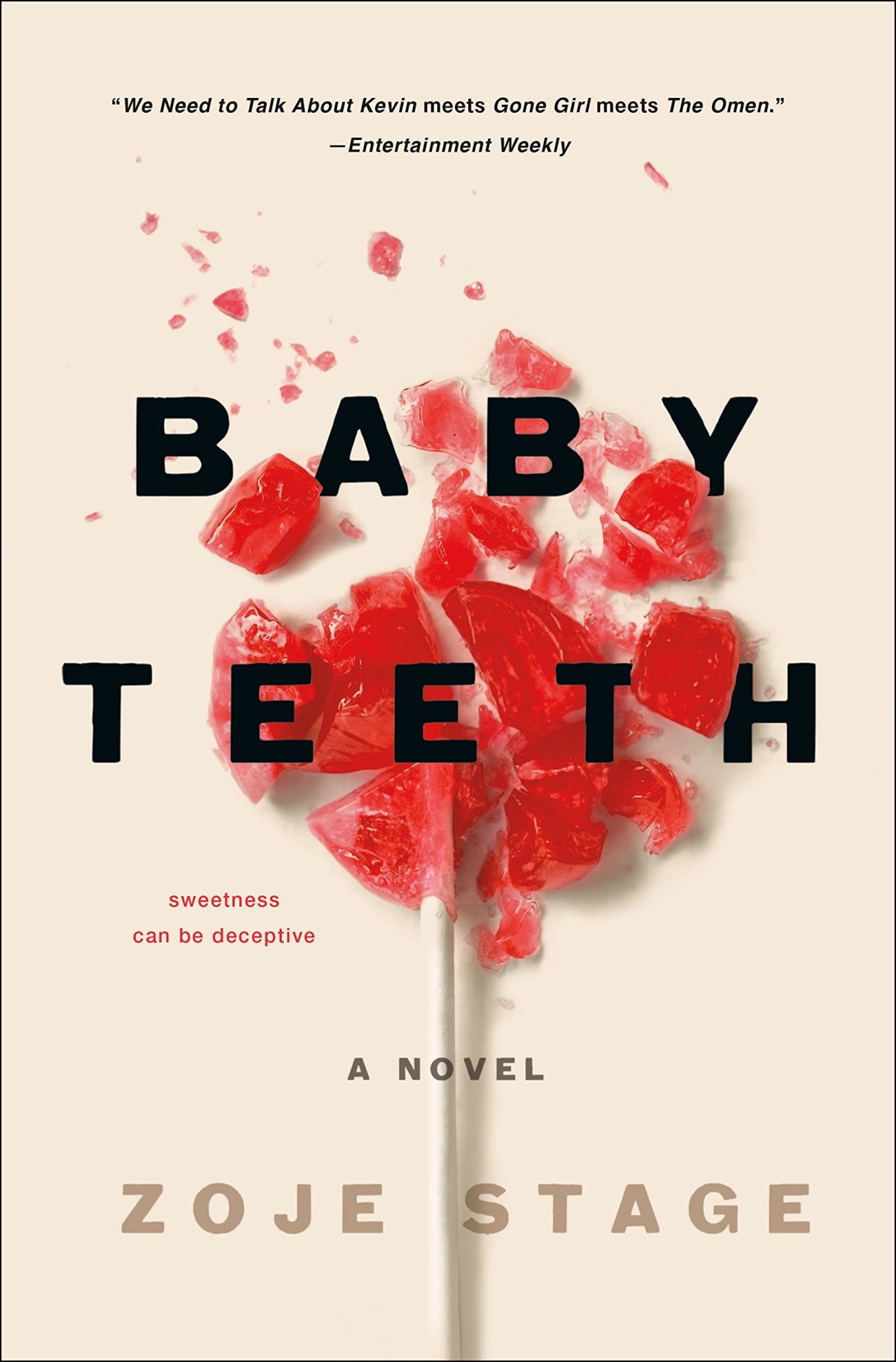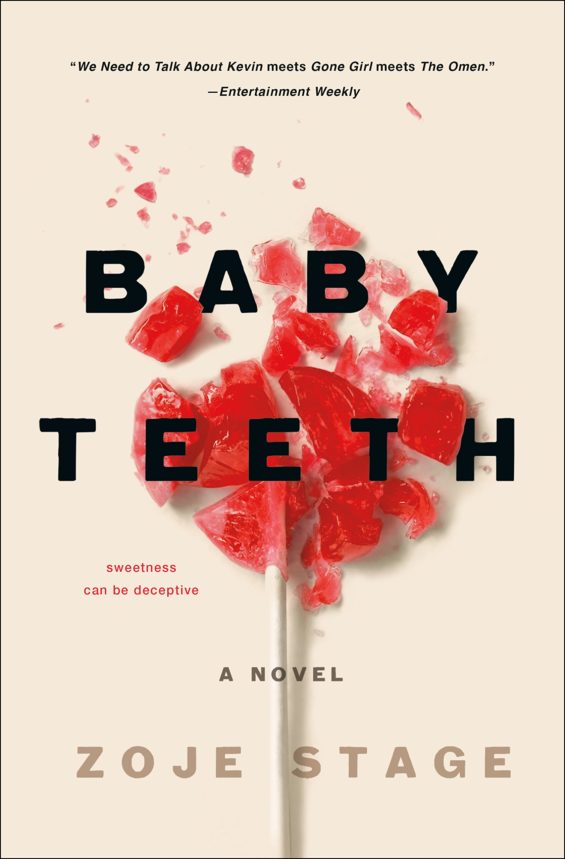Book Review: Baby Teeth by Zoje Stage


The pantheon of horror fiction has included several prominent women authors, from Mary Shelley to Daphne du Maurier and Anne Rice. But it has long been a man’s game, usually told from a man’s perspective. When male horror writers’ main characters are women, they’re often prototypical Good Moms, rather than fully realized people—that is, walking, breathing contradictions who demonstrate as many kindnesses as they do questionable thoughts and actions—all the better to play on the reader’s emotions as they’re victimized and terrorized, my dear.
Enter Zoje Stage, whose Baby Teeth was released in 2018. Instead of the loony-tunes or substance-abusing unreliable narrator that exploded in popularity after Gillian Flynn’s Gone Girl hit the book scene, Stage focuses on Suzette, who looks, at least from the outside, like the ideal of suburban momhood. She’s consistently one pulled sweater thread away from unraveling, thanks to a potent combination of a debilitating disease (Crohn’s); giving up a career to play stay-at-home mother to a sweet-faced yet mute and manipulative seven-year-old daughter, Hanna; and a passive husband, Alex, who dotes on Hanna while downplaying Suzette’s pains as caregiver. As Hanna transitions from everyday cruelties like snuggling up to her father while ignoring her mother and into the vindictive and violent, the plot spins into the ultimate home- and life-invasion story, with the intruder occupying space under the same roof every single day.
Suzette attempts to erect boundaries; Hanna crashes through them like a bull chasing a red cape. Suzette appeases Hanna with treats and praise; Hanna begins to speak, only to her, in strangely foreboding fragments. With each escalation—from stolen earrings to malicious visits in the middle of the night and a deeply creepy image collage—Suzanne becomes more afraid of and detached from her daughter. Is Hanna simply a bad seed, an evil-born child like Rosemary’s baby or Damien Omen? Or does she have an ax to grind with Suzette, who, like any mother, sometimes finds herself so overwhelmed by obligation and the crossed wires of human communication that she questions her life decisions—including Hanna?
Stage is a screenwriter by trade, and her cinematic eye is evident in her scene setting and ability to peel away a character’s layers as the story swoops, stalls, and propels forward again. She’s a fresh voice in a genre that could use more complicated depictions of women. Baby Teeth succeeds not just as a skin-crawler, but as a narrative of the extraordinary demands placed on mothers and coming to terms with the “dirty little secret” that sometimes a parent’s love reserves can indeed be exhausted. It also plays on parents’ fear that they can never truly know their child, that despite their best attempts at raising a good human, he or she might just turn into something frightening, dangerous, and utterly unfathomable.
Baby Teeth is slated for a film adaptation, which, given the industry’s usual MO of turning really good horror stories into the hokey, schlocky, yawn-worthy, and forgettable, is worrisome. My advice? Sink your teeth into Baby Teeth now, before Hollywood gets its grimy mitts all over it.
